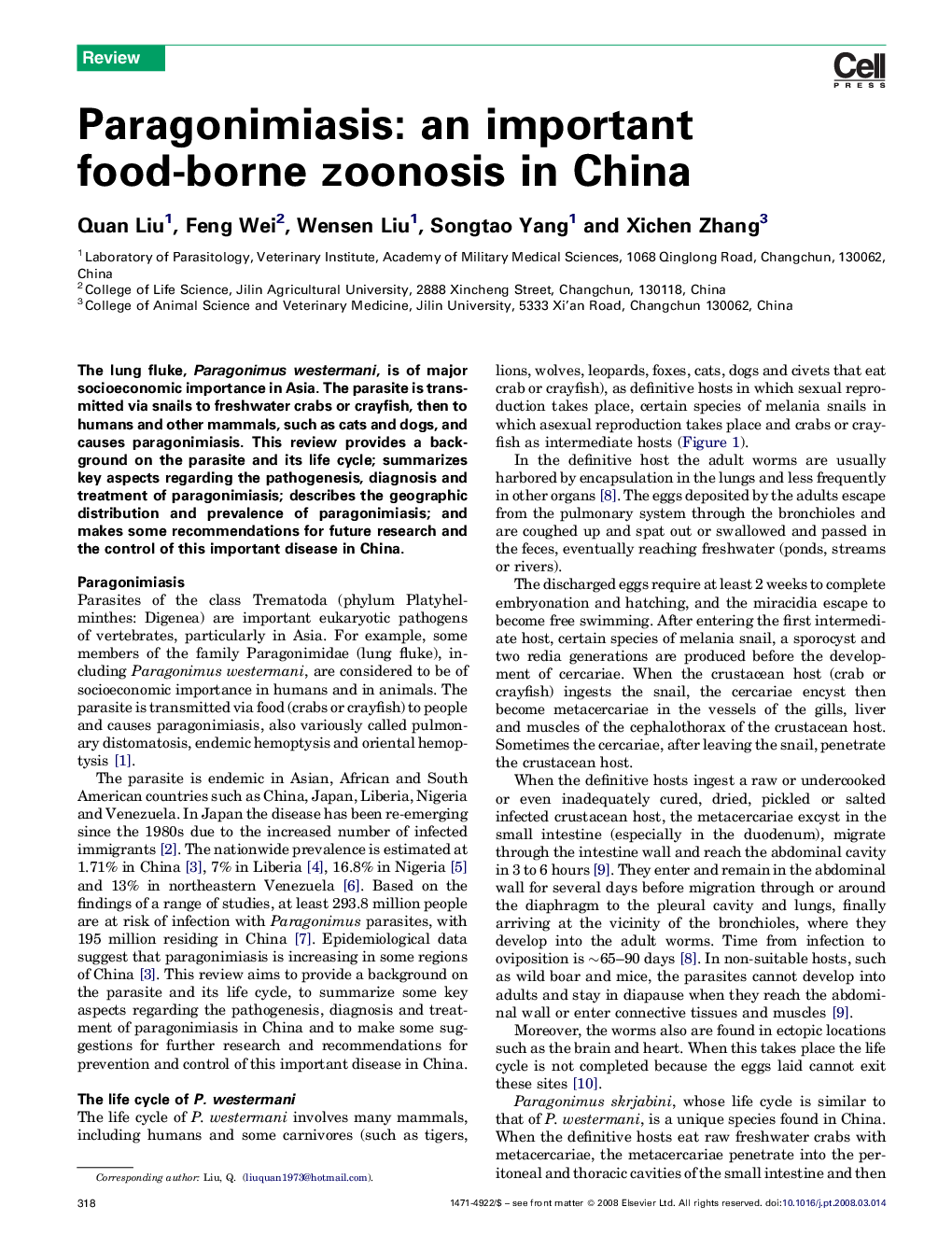| Article ID | Journal | Published Year | Pages | File Type |
|---|---|---|---|---|
| 3423526 | Trends in Parasitology | 2008 | 6 Pages |
Abstract
The lung fluke, Paragonimus westermani, is of major socioeconomic importance in Asia. The parasite is transmitted via snails to freshwater crabs or crayfish, then to humans and other mammals, such as cats and dogs, and causes paragonimiasis. This review provides a background on the parasite and its life cycle; summarizes key aspects regarding the pathogenesis, diagnosis and treatment of paragonimiasis; describes the geographic distribution and prevalence of paragonimiasis; and makes some recommendations for future research and the control of this important disease in China.
Related Topics
Life Sciences
Immunology and Microbiology
Parasitology
Authors
Quan Liu, Feng Wei, Wensen Liu, Songtao Yang, Xichen Zhang,
